Hyundai Bayon vs Dacia Bigster – Differences & prices compared
Compare performance, boot space, consumption and price in one view.
Find out now: which car is the better choice for you – Hyundai Bayon or Dacia Bigster?
The Hyundai Bayon (SUV) comes with a Petrol engine and Manuel or Automatic transmission. In comparison, the Dacia Bigster (SUV) features a Petrol MHEV, Full Hybrid or LPG engine with Manuel or Automatic transmission.
When it comes to boot capacity, the Hyundai Bayon offers 411 L, while the Dacia Bigster provides 667 L – depending on how much space you need. If you’re looking for more power, decide whether the 100 HP of the Hyundai Bayon or the 155 HP of the Dacia Bigster suits your needs better.
In terms of consumption, the values are 5.40 L per 100 km for the Hyundai Bayon, and 4.70 L for the Dacia Bigster.
Price-wise, the Hyundai Bayon starts at 20100 £, while the Dacia Bigster is available from 20600 £. Compare all the details and find out which model fits your lifestyle best!
Hyundai Bayon
The Hyundai Bayon is a compact crossover that effortlessly merges practicality with modern design. Its sleek exterior and spacious interior make it an ideal choice for urban settings and longer journeys alike. With a focus on comfort and connectivity, this vehicle provides a smooth driving experience paired with advanced technology features.
details @ hyundai.news
@ hyundai.news
 @ hyundai.news
@ hyundai.news
 @ hyundai.news
@ hyundai.news
 @ hyundai.news
@ hyundai.news
 @ hyundai.news
@ hyundai.news
Dacia Bigster
The Bigster is poised to redefine the SUV segment with its bold design and spacious interior, catering to the needs of both families and adventure seekers alike. Emphasizing sustainability and practicality, this model reflects a modern approach to automotive engineering, making it a compelling choice for environmentally conscious drivers. With its striking presence on the road, the Bigster not only captures attention but also embodies a new era of versatile mobility.
details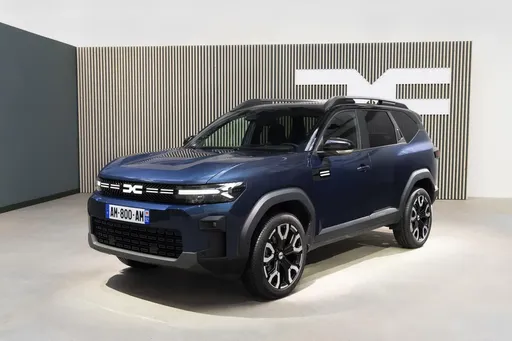 @ media.renault.at
@ media.renault.at
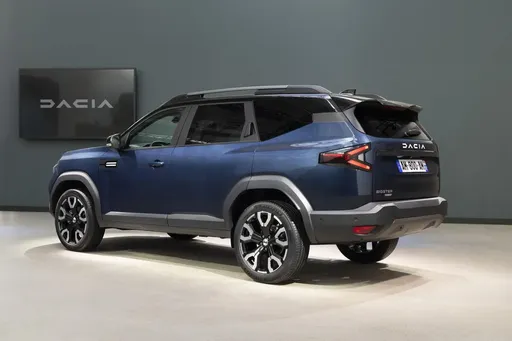 @ media.renault.at
@ media.renault.at
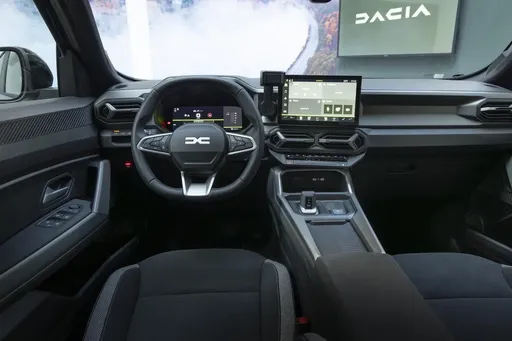 @ media.renault.at
@ media.renault.at
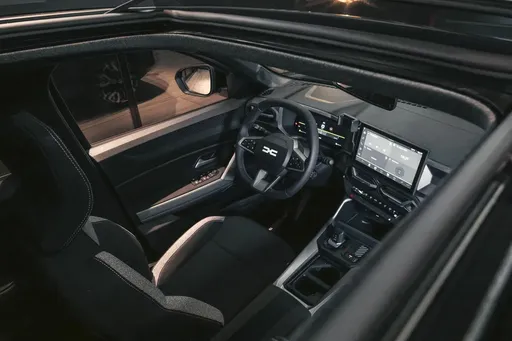 @ media.renault.at
@ media.renault.at
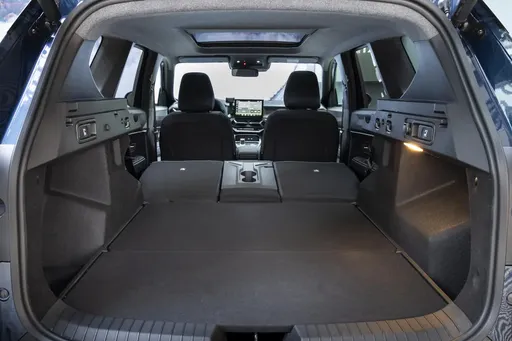 @ media.renault.at
@ media.renault.at

|

|
|
|
|
Costs and Consumption |
|
|---|---|
|
Price
20100 - 25800 £
|
Price
20600 - 26600 £
|
|
Consumption L/100km
5.4 - 5.5 L
|
Consumption L/100km
4.7 - 7.1 L
|
|
Consumption kWh/100km
-
|
Consumption kWh/100km
-
|
|
Electric Range
-
|
Electric Range
-
|
|
Battery Capacity
-
|
Battery Capacity
-
|
|
co2
124 g/km
|
co2
106 - 137 g/km
|
|
Fuel tank capacity
40 L
|
Fuel tank capacity
50 - 55 L
|
Dimensions and Body |
|
|---|---|
|
Body Type
SUV
|
Body Type
SUV
|
|
Seats
5
|
Seats
5
|
|
Doors
5
|
Doors
5
|
|
Curb weight
1170 - 1195 kg
|
Curb weight
1425 - 1547 kg
|
|
Trunk capacity
411 L
|
Trunk capacity
510 - 667 L
|
|
Length
4180 mm
|
Length
4570 mm
|
|
Width
1775 mm
|
Width
1813 mm
|
|
Height
1500 mm
|
Height
1705 mm
|
|
Payload
460 - 465 kg
|
Payload
383 - 467 kg
|
Engine and Performance |
|
|---|---|
|
Engine Type
Petrol
|
Engine Type
Petrol MHEV, Full Hybrid, LPG
|
|
Transmission
Manuel, Automatic
|
Transmission
Manuel, Automatic
|
|
Transmission Detail
Manual Gearbox, Dual-Clutch Automatic
|
Transmission Detail
Manual Gearbox, Automated Manual
|
|
Drive Type
Front-Wheel Drive
|
Drive Type
All-Wheel Drive, Front-Wheel Drive
|
|
Power HP
100 HP
|
Power HP
130 - 155 HP
|
|
Acceleration 0-100km/h
11.3 - 12.4 s
|
Acceleration 0-100km/h
9.7 - 11.2 s
|
|
Max Speed
176 - 179 km/h
|
Max Speed
180 km/h
|
|
Torque
172 - 200 Nm
|
Torque
230 Nm
|
|
Number of Cylinders
3
|
Number of Cylinders
3 - 4
|
|
Power kW
74 kW
|
Power kW
96 - 115 kW
|
|
Engine capacity
998 cm3
|
Engine capacity
1199 - 1799 cm3
|
General |
|
|---|---|
|
Model Year
2024
|
Model Year
2025
|
|
CO2 Efficiency Class
D
|
CO2 Efficiency Class
E, D, C
|
|
Brand
Hyundai
|
Brand
Dacia
|
Hyundai Bayon
Introducing the Hyundai Bayon: A New Era in Compact SUVs
The Hyundai Bayon, a compact SUV designed with urban adventurers in mind, is making waves with its exceptional blend of style, performance, and technology. The brand has pulled out all the stops to ensure that the Bayon stands out in the crowded SUV market, offering a vehicle that is both practical and innovative.
Sleek Design and Cutting-Edge Aerodynamics
The Bayon features a striking exterior design, characterised by its bold lines and angular shapes. With a length of 4180 mm, a width of 1775 mm, and a height of 1500 mm, the Bayon commands attention with its modern appeal and aerodynamic efficiency. These dimensions not only contribute to its sleek design but also enhance fuel efficiency, achieving an impressive 5.4 L/100 km.
Engine Performance and Specifications
Under the bonnet, the Bayon is powered by a 1.0-litre T-GDI petrol engine, delivering a robust 100 PS or 74 kW. This engine is available with either a manual or automatic gearbox, meeting varied driver preferences. The front-wheel-drive system complements its urban-centric design, ensuring a smooth and responsive ride.
Maximised Interior Space and Comfort
The spacious interior of the Bayon accommodates up to five passengers comfortably. The vehicle boasts a boot space of 411 litres, perfect for both everyday use and weekend getaways. The cabin is designed with practicality and technology in mind, with intuitive controls and ample storage options.
Advanced Technology and Connectivity
Hyundai has equipped the Bayon with state-of-the-art technology to enhance the driving experience. The SUV features a high-resolution touchscreen, offering seamless connectivity with Apple CarPlay and Android Auto. Safety is also a priority, with multiple driver assistance systems including lane-keeping assist and forward collision avoidance assist.
Environmental Efficiency
Despite its powerful performance, the Bayon achieves a respectable CO2 efficiency class of D, with emissions as low as 122 g/km. This balance between performance and environmental responsibility makes the Bayon an attractive option for conscientious drivers.
Affordability and Market Appeal
The Hyundai Bayon is competitively priced, ranging from €22,900 to €29,600. Its affordable running costs, estimated at 32.3 to 36.4 cents per kilometre, further enhance its appeal to budget-conscious consumers. With monthly costs ranging from €806 to €909, the Bayon provides excellent value without compromising on features or performance.
Final Thoughts
The Hyundai Bayon truly stands out in the compact SUV segment, combining style, innovation, and practicality in an appealing package. It offers a versatile driving experience suited to the demands of modern urban living, making it a top contender in its class. As Hyundai continues to champion forward-thinking design and technology, the Bayon is a testament to the company's ongoing commitment to excellence.
Dacia Bigster
Introducing the Dacia Bigster: A Game Changer in the SUV Market
The Dacia Bigster is poised to redefine the landscape of compact SUVs with its striking design, innovative technologies, and a variety of powertrains that cater to a broad range of consumers. As the automotive world continues to shift towards sustainability without compromising performance, the Bigster stands out with its thoughtful engineering and modern features.
Striking Design and Practicality
From the moment you lay eyes on the Bigster, you can see that it was designed with purpose. Its robust silhouette, bold front fascia, and wide stance convey a sense of strength and stability. With dimensions of 4570 mm in length, 1813 mm in width, and standing 1705 mm tall, the Bigster offers a spacious cabin that comfortably accommodates five passengers. Coupled with a trunk capacity ranging from 546 to 667 liters, this SUV is as practical as it is stylish, making it perfect for both city driving and outdoor adventures.
Powerful and Efficient Engines
The Dacia Bigster offers a range of engine options designed to meet diverse consumer needs. The line-up includes two petrol MHEV variants: the TCe 130 and TCe 140, both available in front-wheel drive and all-wheel drive configurations. These engines not only deliver robust performance, with outputs between 130 and 140 HP, but also prioritize fuel efficiency, achieving consumption figures as low as 5.5 liters per 100 kilometers.
For those seeking an eco-friendlier option, the Bigster also features a Full Hybrid variant, the Hybrid 155, which offers an impressive 155 HP with a fuel efficiency rating of just 4.7 L/100 km. Additionally, the ECO-G 140 LPG variant allows for even more cost-effective driving without sacrificing power, catering especially to environmentally conscious consumers.
Innovative Technology Enhancements
The Dacia Bigster is equipped with an array of advanced technological features aimed at enhancing the driving experience. Its comprehensive infotainment system integrates a user-friendly interface with smartphone connectivity, ensuring that drivers can stay connected while on the road. Safety has also been prioritized, with features such as advanced driver assistance systems designed to keep both the driver and passengers secure.
Performance Meets Efficiency
Performance is a central theme in the Bigster's engineering. The SUV boasts a range of acceleration times, with the TCe 130 reaching 0-100 km/h in approximately 11.2 seconds and the TCe 140 doing so in a swift 9.8 seconds. The Hybrid model enhances this performance even further, offering a 0-100 km/h time of just 9.7 seconds. With a maximum speed of 180 km/h, the Bigster is not only capable but also thrilling to drive.
Comfort and Versatility
Inside, the Dacia Bigster emphasizes comfort and versatility with a roomy cabin that features high-quality materials and modern finishes. The SUV is designed with adjustable seating configurations and ample legroom, making it ideal for both daily commutes and longer journeys. It's also worth mentioning that the vehicle's curb weights range from 1425 kg to 1503 kg, optimized for performance and efficiency.
Conclusion: The Future of Driving with Dacia Bigster
The Dacia Bigster is more than just a new SUV; it represents a significant step forward in blending efficiency, performance, and practicality in an ever-evolving automotive landscape. With various engine options, advanced features, and a commitment to sustainability, it is clear that the Bigster is designed to meet the demands of modern drivers while appealing to a wide audience. Whether you are looking for a reliable city cruiser or a capable outdoor companion, the Dacia Bigster is set to deliver on all fronts.
Which drive types are available for the Hyundai Bayon?
Available as Front-Wheel Drive.
The prices and data displayed are estimates based on German list prices and may vary by country. This information is not legally binding.
